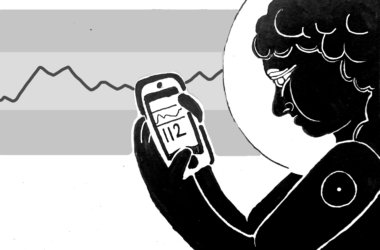We often take many aspects of our lives for granted. Among these are access to healthcare, a place to stay permanently, and a safe and stable home, which are all critical for a healthy and prosperous life. However, many people lack access to these necessities.
Overlooking the improvement plan for greater access to healthcare in vulnerable communities,
McGill University’s Ingram School of Nursing (ISoN) opened an on-site nursing service at a large homeless shelter called Accueil Bonneau near the Old Port area of Montreal in 2021.
Amid this initiative, Molly Korab, a registered nurse (RN) in Internal Medicine and a research leader at ISoN, has pursued an interview-based qualitative project to encompass the perspectives of frontline shelter staff regarding the health needs of the unhoused population.
This study aims to shape service development and expand the existing literature on frontline shelter staff’s perspectives in informing the development of health services for the unhoused.
“I was passionately seeking to communicate with shelter staff one-on-one in order to gain a
thorough understanding of the nursing service needs and determine the potential contributions
that the McGill clinics can provide,” Korab said in an interview with The Tribune.
To understand the reasons behind the challenges faced by people living in shelters, nurses interviewed unhoused clients and shelter staff to translate their personal stories into actionable issues to be addressed. Among the many anecdotes, one common theme emerged: Unhoused people prioritize addressing their basic needs like food, shelter, and survival before focusing on healthcare.
The root cause of many health issues often stems from experiencing any form of homelessness. A higher share of unhoused Canadians have poor mental health than the overall population does, primarily due to the lack of constant personal healthcare and the issues that arise from these instabilities. Consequently, the stigma surrounding healthcare in this population has intensified, further exacerbating the already poor health outcomes experienced by these individuals.
“I think that hospitals are also stretched thin [as a result of COVID-19]. We see it in the media. And I think that [makes] the hospitals less patient with our clientele,” one of the shelter staff highlighted during her interview with Korab for this project.
Due to staff shortages and intermittent absence of on-site nursing, medical referrals to these services decreased even after the pandemic. The fluctuating presence of on-site nursing services and the turnover of frontline staff led to a decline in health referrals to doctors, even as staffing rates slowly returned to levels seen before the pandemic.
“For example, during the COVID-19 pandemic, many individuals who were not well-connected
with the healthcare system faced difficulties in accessing necessary medical care,” Korab explained.
Amid these shortages, the remaining nurses were on the frontlines fighting for their everyday lives. Currently, nurses are urging for better conditions to reduce the strain on healthcare staff and the unhoused population. This includes improved hygiene assistance on-site, narrowing frontline staff knowledge gaps, and reducing administrative barriers.
“I strongly believe in highlighting and valuing the voices of those who are actively involved in
this. Whether it’s community nurses, shelter staff, or individuals without homes, I believe the idea of frontline healthcare workers has somewhat disappeared recently,” Korab said.
Meeting the unique needs of the unhoused population requires collaboration between healthcare and community service providers. As Korab highlighted, it is important to create a safe environment where unhoused individuals can build trust and develop long-lasting relationships. To effectively serve this population, health systems should prioritize easy access to primary care and community-based services.
In the meanwhile, Korab advocates for the endless possibilities that nursing research offers to improve healthcare and protect our rights to quality care. By encouraging more nurses to participate in research, we can continue pushing the boundaries of knowledge and ensure that healthcare remains a fundamental right for all individuals.









